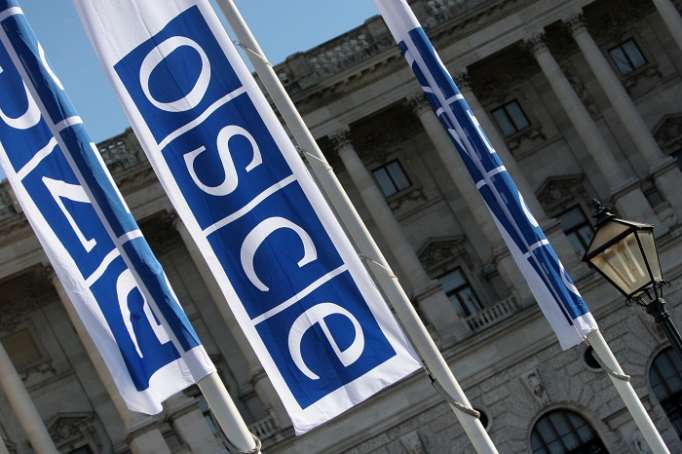During the speech, the mission emphasized that Armenia, having grossly violated the ceasefire on September 27 this year, shelling Azerbaijan's positions along the line of contact from large-caliber weapons, mortars and artillery, carried out new military aggression against Azerbaijan.
The mission provided detailed information that the armed forces of Armenia, grossly violating the fundamental norms and principles of international law, including humanitarian law, are purposefully firing at the civilian population.
According to the mission, in order to prevent the new military aggression of Armenia and ensure the safety of the civilian population living in the immediate vicinity of the line of contact, the armed forces of Azerbaijan, within the framework of the right to self-defense and strictly observing the norms of international humanitarian law, are carrying out counter-offensive measures.
It was stressed that the Armenian aggression against Azerbaijan is a gross violation of fundamental norms and principles of international law, UN Security Council resolutions demanding the complete and unconditional withdrawal of Armenian troops from all occupied territories of Azerbaijan, international humanitarian law, including the 1949 Geneva Conventions and Protocols to them.
The mission further pointed out that the lack of an adequate response to provocative statements and acts of aggression by Armenia, as well as the use of double standards and a selective approach in fulfilling the principles of the Helsinki Final Act contributed to impunity and the current provocative activities of Armenia.
In connection with a number of calls for a ceasefire, it was brought to the attention of the international community that the main reason for the violation of the ceasefire and the aggravation of the situation is the illegal presence of the armed forces of Armenia in the occupied territories of Azerbaijan and the continuation of the conflict.
As it was also noted, the Azerbaijani side hopes that the OSCE Minsk Group will finally fully realize the seriousness of Azerbaijan's intentions and will demand a full and unconditional withdrawal of Armenia from the occupied territories to ensure peace in the region, and that until then, Azerbaijan will continue its legitimate military operations.
“The settlement of the conflict is possible only on the basis of full respect for the sovereignty and territorial integrity of Azerbaijan within the framework of the norms and principles of international law and internationally recognized borders, reflected in the Helsinki Final Act.,” the mission said.
In conclusion, it was stressed that the sooner Armenia agrees with these realities, the sooner the conflict will be resolved, the states and peoples of the region will be able to benefit from cooperation and economic development.
Armenian Armed Forces launched a large-scale military attack on positions of Azerbaijani army on the front line, using large-caliber weapons, mortars and artillery on Sept. 27.
Azerbaijan responded with a counter-offensive along the entire front. As a result of retaliation, Azerbajiani troops managed to liberate some territories previously occupied by Armenia.
Moreover, the positions of the Armenian Armed Forces were destroyed in the direction of Azerbaijan's Agdere district and Murovdag, important heights were taken under control.
Military actions continued on Sept. 29. Azerbaijani army was able to destroy several tanks of the Armenian Armed Forces, as well as several key military facilities.
According to a statement from Azerbaijan's Defense Ministry, the Armenian armed forces have suffered heavy losses along the entire front line from Sept. 27 through Sept. 30, including tanks, armored vehicles, artillery installations, rocket launch systems, as well as command and observation posts, air defense systems, etc.
The conflict between the two South Caucasus countries began in 1988 when Armenia made territorial claims against Azerbaijan. As a result of the ensuing war, Armenian armed forces occupied 20 percent of Azerbaijan, including the Nagorno-Karabakh region and seven surrounding districts.
The 1994 ceasefire agreement was followed by peace negotiations. Armenia has not yet implemented four UN Security Council resolutions on the withdrawal of its armed forces from Nagorno Karabakh and the surrounding districts.
More about: #OSCE
















































